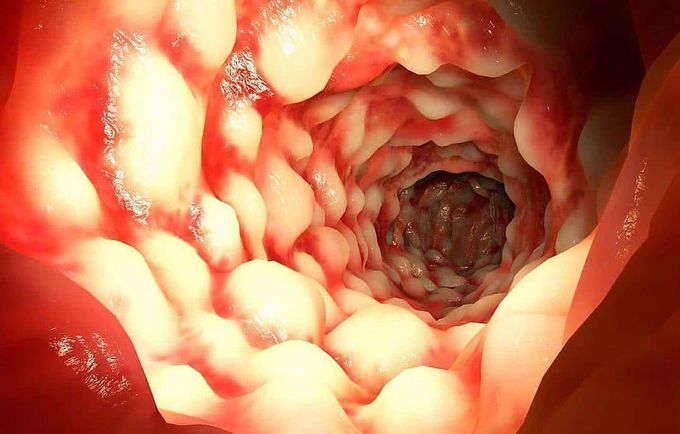


Crohn's Disease
Crohn's disease is a type of inflammatory bowel disease (IBD) that may affect any segment of the gastrointestinal tract from the mouth to the anus. It causes inflammation of the digestive tract. Symptoms often include abdominal pain, diarrhea (which may be bloody if inflammation is severe), fever, abdominal distension and weight loss. Crohn's disease can lead to several mechanical complications within the intestines, including obstruction, fistulae and abscesses. During a colonoscopy, biopsies of the colon are often taken to confirm the diagnosis. Certain characteristic features of the pathology seen point toward Crohn's disease; it shows a transmural pattern of inflammation, meaning the inflammation may span the entire depth of the intestinal wall. Ulceration is an outcome seen in highly active disease. There is usually an abrupt transition between unaffected tissue and the ulcer—a characteristic sign known as skip lesions. Under a microscope, biopsies of the affected colon may show mucosal inflammation, characterized by focal infiltration of neutrophils into the epithelium. This typically occurs in the area overlying lymphoid aggregates. These neutrophils, along with mononuclear cells, may infiltrate the crypts, leading to inflammation (crypititis) or abscess (crypt abscess).
Source: https://www.instagram.com/p/CcJCxXrMWZy/?utm_source=ig_web_copy_link
